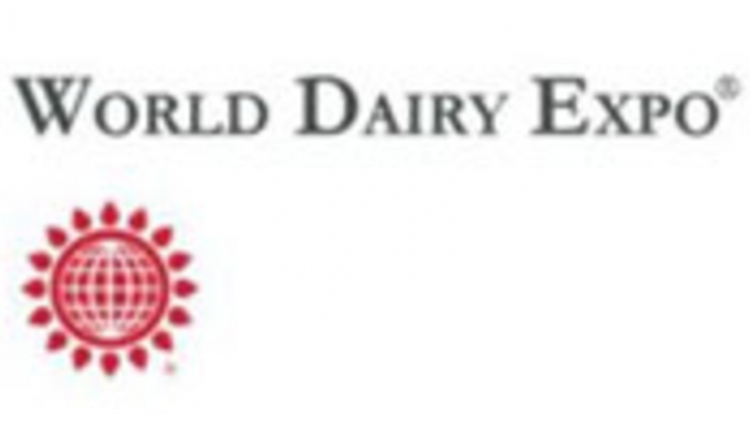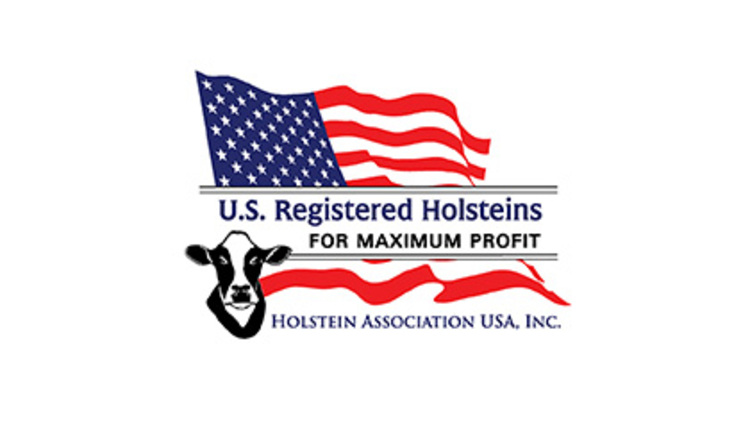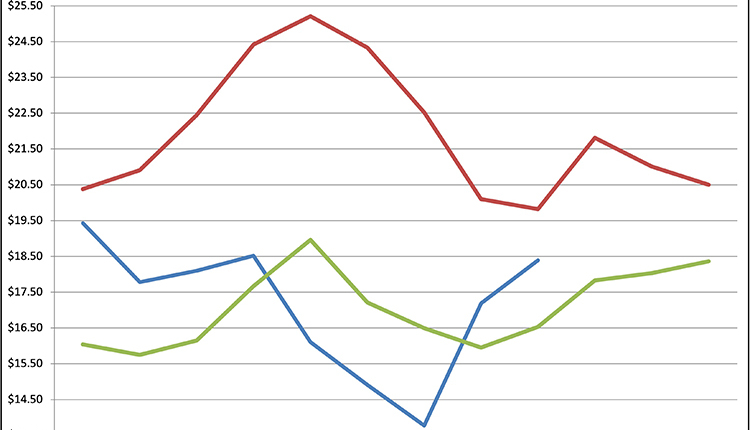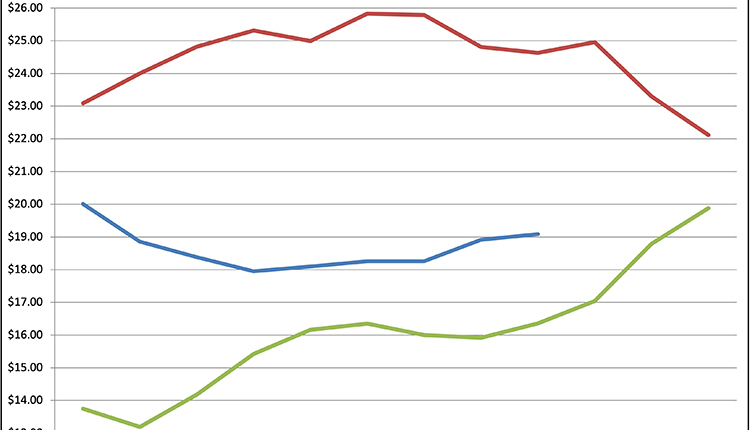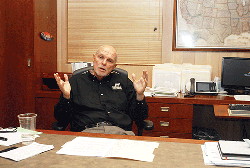 If the headline of this article looks familiar, it's because it is nearly identical to the one we used in our April 25 issue interview with Chino, Calif., dairy producer Geoffrey Vanden Heuvel. It is an understatement to say that the article caused a splash in the dairy industry, as it was linked and relinked to our website for distribution that put it in front of many more readers than in just the West.
If the headline of this article looks familiar, it's because it is nearly identical to the one we used in our April 25 issue interview with Chino, Calif., dairy producer Geoffrey Vanden Heuvel. It is an understatement to say that the article caused a splash in the dairy industry, as it was linked and relinked to our website for distribution that put it in front of many more readers than in just the West.It also prompted one of California's leading dairy industry executives, John Jeter, CEO and president of Hilmar Cheese Company, to volunteer for an interview to discuss the situation from a processor's perspective. Right from the start, it was obvious that he and Vanden Heuvel have great mutual respect for each other. They also agree on more things than they do not - including the premise that the state's pricing system has been outdated for years and no longer serves milk producers in a timely and effective manner.
Equally obvious was that the headline for Vanden Heuvel's interview also sums up Jeter's feelings about California's milk pricing system. The difference is, while Vanden Heuvel thinks the system can be fixed, Jeter thinks the low prices it generates prove it is diseased and he believes dairy producers would benefit most if it were killed.
Is the milk pricing situation in California right now as complicated as it looks?
"If you mean the current dynamics and hassle, I really don't think it is. I think it's fairly straightforward. But it has gotten very political; that's what makes it confusing and emotional. I absolutely agree with the headline on the article with Geoff. But he would say it's because of the low prices that dairymen are being paid, and I'm saying it's the leadership culture it has created and the ease with which plants can survive without doing what they need to do. That's what's killing dairymen. They need a change to a more market-oriented system that will drive higher prices."
Does the fact it has become so emotional and political reflect the degree of financial pain that is occurring at the producer level?
"I think that's one of the things that is having a great bearing. I certainly think that the change of dynamics out here - high feed costs and the high volume of purchased feed that most dairies have historically used and that worked so well for so long - has definitely brought pressure to bear on the entire system. Now you don't have to put it into a cow to increase its value, you can just sell it. It's definitely a different dynamic.
"When you get in a difficult situation you look for the problem. In this case the focus has been the big delta between the federal order Class III price and California Class 4b; it's the flash point that your April 25 interview focused on. I think Geoff Vanden Heuvel and I agree that the situation out here is not working for dairymen. When the Gonsalves Milk Pooling Act was set up in the late 1960s, those minimum prices were really setting the milk price. They just aren't that anymore. What the act was started to do and what it's doing today are two different things, and it just doesn't work. So dairymen are suffering.
"At the public hearing May 1 for AB 31 [a proposal to bring California Class 4b whey values into much closer alignment with federal order Class III whey values], one of the dairymen who spoke and is a leader in the state said, "you [the legislature] are our only recourse to fix this." That's a really important statement. We have 200 ag commodities in California and I guarantee you milk is the only one where that statement is made. But is it true? No! Eighty-five percent of the dairymen in California own the entities they ship their milk to - the co-ops. And they are not small entities; two of them are $12 billion [total sales] co-ops and another is a $4 billion co-op. They are not tiny little companies that can't do anything. My point is, that dairyman is part of one of those co-ops and he told the legislators they are the only ones who can take care of this - and that's just not true.
"Actually, it is his statement that is probably at the core of the issue. I think both Geoff and I would agree that this system is really bad for dairymen and that it is not working."
How much of the sentiment expressed by that producer was the result of going through the hearing process and going to court, but getting no results from either one?
"Is that the right way to fix the hearing process? We're saying it's not. We need a market solution today, not a regulated solution. In this global dairy industry that we are in, if you have to go to a secretary of agriculture or a legislature, then we have problems. And we do. We should be tough enough marketers, be innovative enough, and be good enough investors to invest in this tremendous raw material that we have - not go to a secretary of agriculture who can't create value.
"That dairyman who told the legislators, You are our only chance for improvement' - that's just not true. But unfortunately the system has trained our industry to go to Sacramento for revenue increases, instead of turning to the marketplace to create value. As long as regulated pricing exists and regulators are there as the solution, the risk averse in our industry will go there for solutions and will not be forced to compete. Dairymen will continue to suffer as value is not created and it will not solve our most basic problems. It's more difficult to invest and create products and innovate, but it's a market-driven solution and it's the only sustainable way to create and increase value."
It sounds like maybe you're saying co-ops are the problem; that instead of seizing market opportunities that exist they are holding on to the commodity product manufacturing business model they have used for decades.
"I want to go back to some of Geoff's comments because I think they're good. When the pooling system was set up it established make allowances to create plant capacity. The regulators assured plant operators - the co-ops - they were going to make a return on investment. And frankly, it was a great strategy. It worked. Probably the most dynamic segment of agriculture during the last 50 years is the California dairy industry from 1980 to 2005. The regulators were working with the co-ops and private firms very effectively, but when the cheap feed situation changed the deal kind of ran out. And as global markets opened up it became imperative that if you were going to be successful you needed to be a global marketer.
"Because of the old environment where they could just build plants and make "churn and burn" commodities and do well and not do anything else, most California-based co-ops had no research and development, no business development and no applications group. Show me another industry where that occurs. I think we all got caught sitting here thinking, "wow, this is easy."
Wasn't that approach just a product of the pricing structure that exists?
"Yes. The comment Geoff made, We have ended up with very lazy plants' is a great statement that I totally agree with. Now take us. We came along in 1985 with a dozen owners and I recruited three other dairymen who were crazy enough to ship their milk to us. We were a little pip-squeak surrounded by big co-ops. We made stuff. We created things. All of a sudden we created competition. And to one extent or another, every dairyman in this state now gets paid more because of us.
"For dairymen who haven't had experience with a milk buyer that innovates, creates and markets, in a lot of cases their solution tends to be regulation. But regulation is a poor solution. All it will do is get us further down the road of dependence and lack of innovation and investment. We agree with the Bain Study commissioned by the Innovation Center for U.S. Dairy, that there are tremendous global dairy marketing opportunities. The U.S. has already made so much progress in terms of becoming a global supplier, but California's pricing system is a hindrance to that.
"In California, the minimum price is truly the price. In a federal order the minimum price is optional; only what you choose to pool is subject to it. In California it is not optional; if it is Grade A milk, it is subject to the minimum price. That's why California and federal order prices are not comparable and it's why the minimum price needs to be low and market-driven prices need to be above that.
"That's a different way of thinking. We started it in 1985 and we still believe that's the way to do it. It creates value and, frankly, it creates the opportunity to let dairymen share value. Last year in California we paid $40 million in premiums over the state minimum. We do that because we've invested. The value to do it was in the milk, but it had to be created and we've invested quite a bit to be able to do it."
Dairymen say that, by and large, the last four years have been a financial disaster for them. Are things as bad as they say, or are they blowing things out of proportion?

"We need a market solution today, not a regulated solution. In this global dairy industry that we are in, if you have to go to a secretary of agriculture or a legislature then we have problems. And we do. We should be tough enough marketers, be innovative enough, and be good enough investors to invest in this tremendous raw material that we have not go to a secretary of agriculture who can't create value."
John Jeter
"I think they have been the toughest four years; I don't disagree with that. But I also think there are haves and have-nots. Guys that buy all of their feed are more of the have-nots, and guys that buy none or only some are on the haves side. And when you think of the guys in Southern California, they don't even have the opportunity to buy land to grow feed. It's a really tough dynamic for them.
"The question is, how did we get here? In a situation where massive investment has not been made by certain segments of the industry, they're really getting nothing extra for their milk. That's the issue. We think that rather than complaining in Sacramento to CDFA (California Department of Food and Agriculture) or the legislature, dairymen ought to be going back into their own organizations and saying, "We need to create more value."
During that same four-year period, has the processing industry had as tough of a time?
"What did a couple of the big co-ops do with some of their cheese plants during that time? They shut them down or sold them. So we think there are haves and have-nots there too. What happened as a result of those combined moves was, all of them became much greater nonasset participants and they looked to the regulated price for solutions. That's a bad deal for dairymen.
"I think that dairymen are blaming Sacramento and us [Hilmar Cheese], when they really should be looking at the organizations they own. Dairymen say we are not sharing whey revenue when, in fact, we are. The way the system works in California, if the minimum price was increased to include premiums, then the $40 million we paid in premiums would have to go into the pool and be redistributed to all dairymen in the state. Only a portion of the $40 million would make its way back to our dairymen - meaning they would make less. We're already paying the money; they just don't want it to go to only our dairymen. They want it to go to everybody, including those who divested cheese plants."'
Isn't that just free enterprise? Can't they do the same thing?
"Absolutely. All of the major California dairy co-ops supply milk to cheese plants as milk brokers essentially. You ought to ask them if they went to those cheese plants and asked for more money; that if there really is a lot of money in whey or whatever that is not being paid out, then they'd like some of it. In a lot of cases they never asked their customers for more money, they just went to the regulated price. It's a mind-set that is just wrong.
"We believe the dairy industry and dairymen would be much healthier if a regulated price was not there, that instead of going to the regulated system they went back to their co-ops and said, We need to invest. We need to be like Fonterra or Arla Foods.' There is no reason that U.S. entities can't be like them."
Some California producers cite two sections of the State Agricultural Code in their arguments for higher minimum prices that they feel have been ignored by CDFA. Those say in part, "bring about and maintain a reasonable amount of stability and prosperity in the production of market milk ..." and "...methods or formulas shall be reasonably calculated to result in prices that are in a reasonable and sound economic relationship with the national value of manufactured milk products." Do you think CDFA is fulfilling those directives?
"I think what frequently happens is, they take that to mean their milk should be valued the same, but that's not what the law says. I guess the factor I disagree with is, the price of milk in California is a true minimum price. The price in federal orders, where that bigger whey factor is, is an optional price. The federal order Class III and the California 4b are different things. In federal orders the Class III doesn't have to be paid. When one of the co-ops has surplus milk I can buy it at $3 under in Texas, but here I have to pay the minimum price. The point is, if you don't pool you don't have to pay the regulated price, and that's core to the issue. So we would be happy with a federal order in California, because we would have much greater flexibility [in what we pay for milk]."
Exports today account for about 13 percent of all milk solids produced in the U.S.; they are clearly vital to the survival of the industry. California is not only the biggest dairy state in the country, but it is most ideally situated to serve Asian markets. What does the California dairy industry have to do to capitalize on those huge advantages?
"The regulated price presents some complications, because it's based upon the domestic market while we are selling into a global market. To the extent that those things are out of synch it can actually discourage you from exporting. That's why the Bain study said that the milk pricing system needs to be reformed in order for the U.S. to become a consistent supplier."
To become a consistent supplier, is it a must that milk comes out of California?
"Yes. California is perfectly positioned to be an amazing exporter, just like we already are with so many other ag commodities. Our milk supply is basically the size of New Zealand's. Frankly, I need more plant capacity and I need it to fuel exports. But using an end product price formula that can change rapidly to extract more via regulation rather than via marketing skills is problematic."
If a company started by 12 dairymen can do this, can't it be done by other organizations that are much older and larger?
"That's our point. Rather than going to the Secretary of Agriculture or the legislature for a regulated something, we just need to go out and create value. And it can be done. Back to that dairymen who told the legislators they were his only avenue for more money, if they believe him then it's bad. For one thing it's just not true. Other people can do this. And that's why in the end we think dairymen are struggling in this state. Yes, there is a feed issue, but we all need to get serious about creating value. All of us."
If you had a magic wand, what would you change about California's pricing system?
"We need some type of transitional time frame. I would pick a date about three to five years out and say at that point it is going to end. It would let us get prepared financially for what's going to come. I think at that point there would be an investment boom, literally. Do you know why we think foreign entities don't come in here? Because of the milk pricing system. Fonterra should be here buying milk, but they aren't. Why do you think that is? I think we'd see a change in the players who are here if the current pricing system went away. We think competition is good for dairymen, and that's what needs to happen."
Since there is no such thing as a magic wand, changes to the system will invariably take time. For producers who say they don't have the luxury of time, is there a reason for them to be hopeful in the short-term?
"I think in the short-term feed prices are moderating somewhat, and because of the growing global demand that we seem to be making progress tapping into, I think where prices used to be in a lower realm they are now in a higher realm. We believe they are going to stay there and Rabobank says they're going to stay there. We think feed prices certainly need to moderate and then we need to make regulatory price changes. Then I think you're going to see investment come into this state and there's going to be better competition for milk."
You're a processor. You need producers to be successful, right?
"Yes. We want them and their co-ops to do well, because if they don't the dairymen go for regulated solutions and I think that will hurt our global competitiveness. If they invest hard and are successful they'll have to fight us, and that's okay. We'll all fight for milk and that will be great for dairymen. They need to have competition. But this regulated pricing system has really just been terrible for dairymen for the last 15 years."


